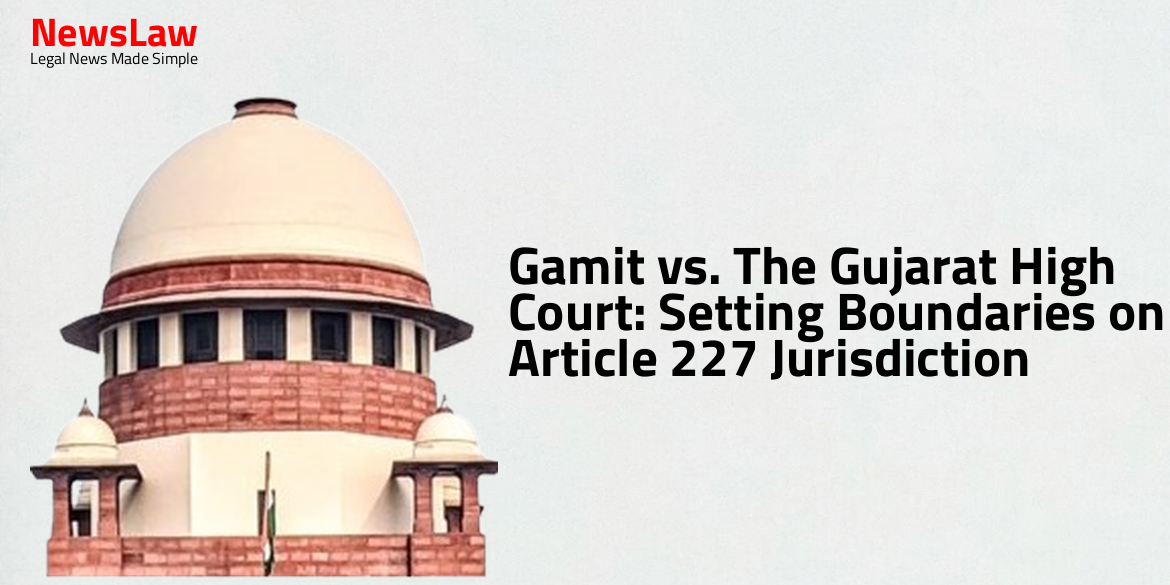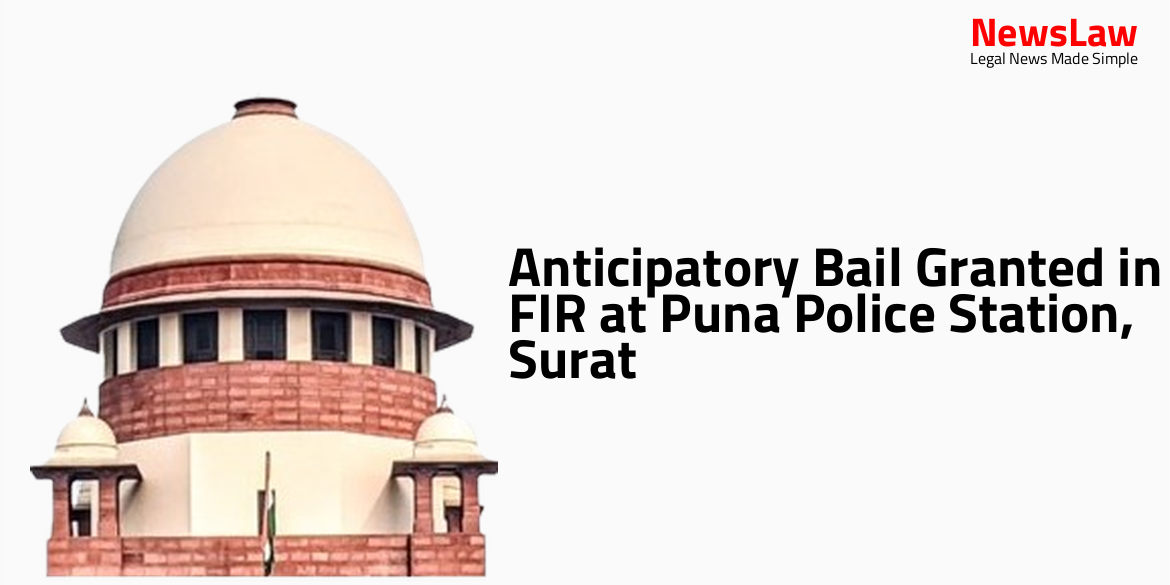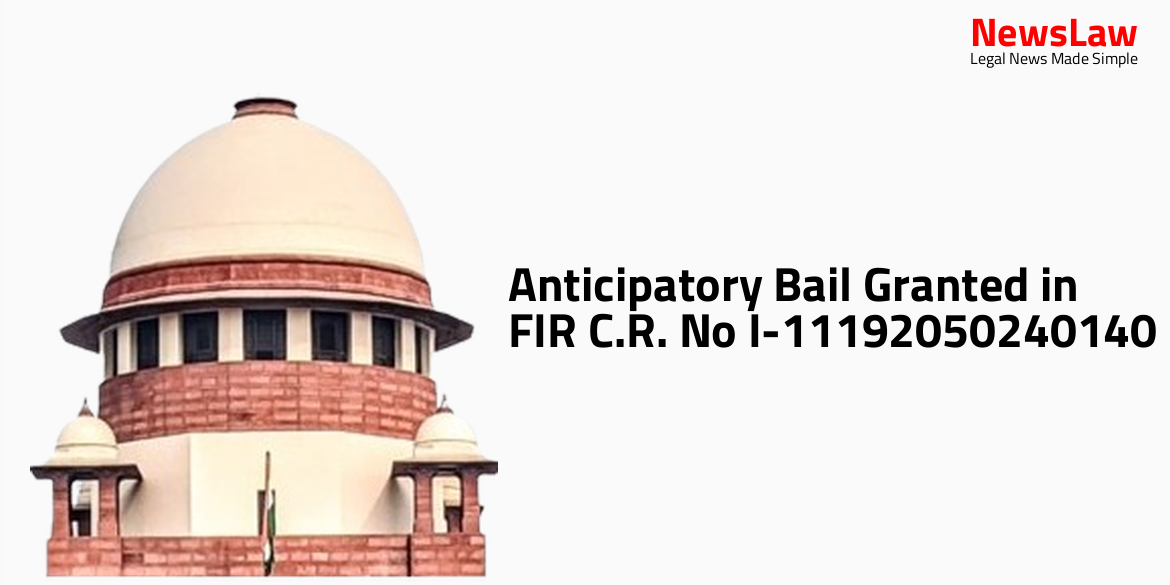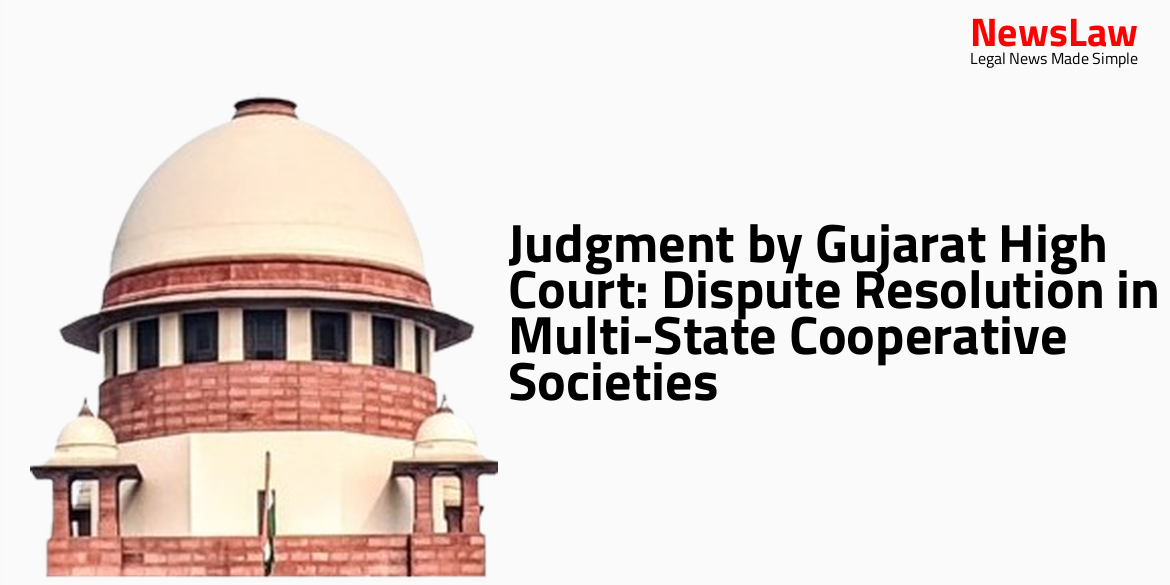In a significant legal development, the Gujarat High Court has issued a pivotal judgment in the case of Gamit vs. The Gujarat High Court, highlighting the constraints of Article 227 jurisdiction. The ruling emphasizes the court’s role in rectifying serious legal injustices. The case revolves around a defamation suit where plaintiffs sought compensation for alleged defamatory news reports. Follow the summary to explore the nuanced legal considerations in this landmark judgment.
Facts
- Plaintiff no.3 deposed on behalf of all the plaintiffs.
- Witness Rajeshbhai G Bhikhubhai Gamit filed Examination-in-Chief on 14.02.204.
- Cross-Examination of the plaintiff was conducted on 17.01.2024 and 31.01.2024.
- Plaintiffs alleged that news reports by present petitioners were defamatory and disreputed them in society.
- Plaintiffs filed Special Civil Suit No.4 of 2022 seeking compensation of Rs.15.00 Crores with interest for allegedly defamatory news.
- Allegations were regarding breach notices issued to plaintiffs for the Game Zone and Shopping Complex development.
- Examination-in-Chief statements indicate deposition for all plaintiffs.
Arguments
- The petitioner argues that the reasons given by the Trial Court are vague and do not comply with the provisions of Order 18 Rule 3(A) of CPC.
- Plaintiff no.3 has already been examined, followed by other witnesses, and now plaintiff no.1 intends to examine himself.
- The petitioner submitted application Exh.240 before the Trial Court which was allowed by the Court.
- The petitioner contends that the Trial Court overlooked the provisions of Order 18 Rule 3(A) of CPC.
- The petitioner cites judgments from Madras High Court and High Court of Uttarakhand to support the argument that plaintiff no.1 did not reserve his right after examining other witnesses.
- The petitioner asserts that the Trial Court erred in allowing application Exh.240 without proper consideration.
- Plaintiffs no.1 and 3 are different individuals jointly prosecuting the suit for similar cause of action.
- Both plaintiffs have their own individual cause of action for defamation.
- The nature of the suit involves seeking compensation from the defendants for defamatory articles published in the newspaper.
- The submission that application Exh.240 was moved to fill a lacuna is argued.
- The learned advocate for the petitioner’s submission is considered completely misconceived.
- Judgments relied upon by the petitioner’s advocate do not assist in the facts of the case.
Analysis
- The High Court has a duty to ensure inferior courts and tribunals stay within their authority and perform their duties in a legal manner.
- The High Court’s power under Article 227 is not unlimited and is only to be used in cases of serious dereliction of duty or flagrant violation of fundamental principles of law or justice.
- Interference by the High Court is limited to correcting grave injustices that would otherwise remain uncorrected.
- The supervisory jurisdiction under Article 227 is restricted to cases of serious dereliction of duty and flagrant violation of fundamental principles of law or justice.
- The impugned order is found to be contrary to law and cannot be sustained
- The High Court’s jurisdiction under Article 227 is limited and does not permit reevaluation of evidence or facts
- The case at the Trial Court is still at the stage of producing plaintiff’s evidence with no evidence examined from the defendants
- High Court cannot act as a court of first appeal or substitute its judgment for that of the subordinate court
- High Court cannot correct errors not apparent on the face of the record
- The court analyzed the ratio of the judgement
- The key points of the ratio were explained
- The underlying principles of the judgement were highlighted
- The importance of the ratio in the overall decision was discussed
Decision
- The right of the plaintiff is still open
- The petition has been dismissed at the admission stage
Case Title: GUJARAT MITRA PVT. LTD. Vs. SHIVAM PANKAJBHAI PALA
Case Number: R/SCA/8666/2024



